As age starts to rise, everything else seems to decrease. Energy drops, testosterone levels decline, muscle mass is lost, metabolism slows, and even sexual drive lowers.
In fact, these health issues are all related to a vicious cycle of sluggish living. It is not the best idea to wait until we find ourselves worn out and in the midst of a health crisis before we try to boost our energy levels.
These days information is coming at us from all directions. Overwhelming us with ‘shoulds’ and ‘shouldn’t when it comes to our health
The more active you are, the more energetic you’ll feel. Exercise and physical activity are great ways to help your mood, too. If you have issues that stop you from doing the things you once enjoyed, feel free to get creative.
Causes Of Low Energy After 50 & How To Increase It
With age, the body’s production of the growth hormone slows down. This leads to a decrease in deep sleep due to a lack of melatonin. and can drain all of your energy.
Getting older doesn’t automatically mean less vibrancy and vigor, or lower energy levels—no matter what our youth-obsessed culture would have you believe.
Below, I take a closer look at what causes low energy as you age and what you can do to help increase your energy after 50

According to Rush University Medical Center, a reduction in energy is to be expected as we get older due to cellular changes that affect our muscle mass and strength, making strenuous activities more tiring.
Waking up in the morning and feeling as if you haven’t slept a wink could be a sign of sleep apnea, where you stop breathing during the night with shortness of breath.
As we age, our energy declines naturally
Cell alternations reduce muscle mass, and hormonal changes also cause activities to become more tiring. While slowing down is normal, intense, and persistent fatigue is not.
Being just physically active isn’t the only way to boost your energy levels. You should exercise your mind, as well. By keeping your brain active, you can feel invigorated.
Here is a list of tips I put in practice to boost my energy:
Restorative Nutrition
Have you noticed how many women have so-called energy bars crammed in their purses, briefcases, and baby bags? Most of these women aren’t competitive or elite athletes and don’t need the added fuel (that is, calories) found in these products.
Although energy naturally lowers with age, unusual fatigue can result from a larger medical problem.
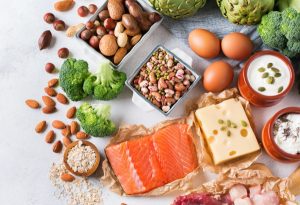
Many illnesses such as heart disease, arthritis, and sleep apnea contribute to low energy.
Your diet plays a large role in how energized you’re feeling—just think about how tired everyone feels after eating turkey on Thanksgiving. The trick is to eat fewer carbs and avoid sugar, two ingredients that will leave you feeling groggy.
Get Better Sleep
An estimated 50 million to 70 million Americans suffer from a chronic sleep disorder. Cwynar says to get the better sleep you need to improve your bedroom hygiene.
If you aren’t getting enough sleep, it’s natural to feel tired. Causes of sleep problems include apnea, in which the affected person has paused or shallow breathing while sleeping; this isn’t unusual with older adults.
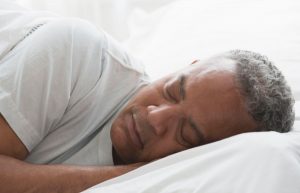
First, get the television out of the bedroom. Studies show that even if you don’t turn it on, your brain associates the TV with stimulation.
From pushing back sultantoto to meet a deadline to missing out on a few hours of sleep due to shifts at work, many people cut back on hours that should be spent in bed.
Go On Nuts
Almonds and peanuts are so nutrient-dense that a single nut packs enough calories to heat up half a cup of water. Nuts are also high in magnesium and fiber, two proven energy boosters.
One drawback to nuts is that they’re high in calories, so it’s important to limit portions.
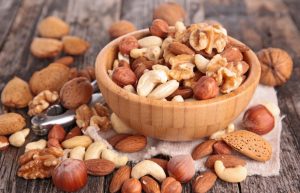
But choosing nuts instead of a less healthy snack may just help you stick to a heart-healthy diet.
Fortunately, you can buy most nuts from the store already shelled and ready to eat.
Here are some of the most commonly consumed nuts:
- presidenttoto
- Brazil nuts
- Cashews
- Hazelnuts
- Macadamia nuts
- Pecans
- Pine nuts
- Pistachios
- Walnuts
Most of the fat in nuts is monounsaturated fat, as well as omega-6 and omega-3 polyunsaturated fat. However, they do contain some saturated fat. Nuts also pack a number of vitamins and minerals, including magnesium and vitamin E.
Packed with protein, fiber, and essential fats, nuts are one of this season’s best buys. A golf ball-sized portion of unsalted nuts makes a vitality-boosting snack and, unlike most other options, contributes a mix of valuable vitamins and minerals.
Keep On Diet
A poor diet or nutritional deficiencies may cause people to have low energy levels. A healthy diet containing plenty of vegetables, whole grains, and proteins can boost a man’s energy levels.
Eating a diet that is lacking in major nutrients, or one that does not contain enough calories can cause fatigue or low energy.
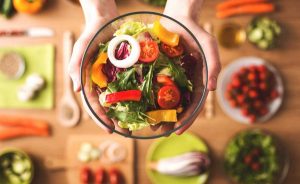
Pick up any diet book and it will claim to hold all the answers to successfully losing all the weight you want—and keeping it off.
Some claim the key is to eat less and exercise more, others that low fat is the only way to go, while others prescribe cutting out carbs
Meanwhile, even if you’ve set your sights on a different aim like abundance or romance, healthier eating can benefit all areas of your life.
It boosts body confidence, may increase energy levels, and could reduce your risk of developing certain major illnesses.
Eat High Protein Foods
If you notice you’re mastertoto groggy after eating a meal featuring bread and pasta, it’s because carbohydrates stimulate your body’s production of sleep producing serotonin.
Studies show that eating protein can also help you lose weight and belly fat while increasing your muscle mass and strength
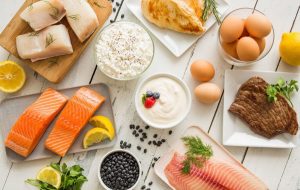
Instead, opt for the main course of lean proteins such as chicken, tuna, or turkey on a bed of spinach or quinoa.
Protein makes up the building blocks of organs, muscles, skin, and hormones. Your body needs protein to maintain and repair tissues. Meanwhile, children need it for growth.
People looking to lose weight often decide to adopt a high-protein diet. Eating protein helps a person feel full, which can lead to them eating fewer calories overall.
Studies have shown that those who regularly fit in the daily recommendation — 60 grams per day for a 160-pound woman — can lose more weight than those who don’t.
Take Your Vitamins
Vitamins aren’t just for children. There are many vitamins and nutritional supplements that can help women over 60 improve metabolism and help you feel energized.
With hundreds of supplements available, it’s hard to believe that not every nutrient in whole foods has been captured in a capsule. That’s why eating a variety of healthy foods is the best way to meet your health needs.
If you’re like many people, you probably have every intention of taking your vitamins every day. But it’s just so darn difficult to remember to pop those pills on a regular basis.
Don’t ignore other pills you may be taking, because as MacKay warns, vitamins and minerals can interact with prescription and over-the-counter meds.
In some cases, this will make one or the other less effective, and in other cases, it could amplify their effects and put you at risk for an overdose.
Keep Hydrated
Most people hear about the importance of drinking plenty of water, but time and time again it’s overlooked as a reason for common health challenges. Your cells, tissues, and organs are all operating in a water Togel Viral.
Even mild dehydration has an impact on the body and the brain.

Feeling sluggish or heavy and what is sometimes referred to as bone-tired, may be a result of your body lacking fluids. The recommended daily intake of water is eight large glasses.
It’s common to get a little constipated if you don’t drink enough water. Inactivity, diet changes, illness, and even stress can add to the problem.
Keeping hydrated is crucial for health and well-being, but many people do not consume enough fluids each day. Around 60 percent of the body is made up of water, and around 71 percent of the planet’s surface is covered by Slot Bet 200




